
In the last three years, I have managed only to have one bad gout attack. Along with a few small ones thrown in for good measure. This was mostly the result of maintaining a proper diet. This year I did start seeing a Rheumatologist for help with Gout and Rheumatoid arthritis. If you’re on the fence about seeing a Rheumatologist, I highly recommend doing so.
A question I am often asked is, “what foods do you avoid to prevent gout attacks.” But my approach to food is a little different than don’t eat this or that. I severely limit some foods and rarely consume others. These bad or dangerous foods contain high purine levels or cause the body to create excess uric acid. These high purine foods are only consumed when my uric acid levels are low.
For men, a uric acid level below 7 mg/dL is considered safe. For Females, uric acid levels should be maintained below 6 mg. dL. Last night when I checked my uric acid level, it was 6.9 mg/dL. It is safe to say that I will not be consuming any foods on this list for the next few days.
Last week my uric acid level was 6.4 mg/dL. When I first saw my Rheumatologist about two months prior, my uric acid level was 8.4 mg/dL. With the diet and medication quickly, my uric acid levels were within the safe range. But even with taking allopurinol every morning, not following the diet caused my uric acid levels to go up.
To monitor my uric acid levels between Doctor visits, I have started using a UASure Uric Acid Meter. By testing once every few days, I can see the progress to stay motivated and make better diet decisions. I hate pricking my finger but knowing my uric acid levels is worth it.
The following is a list of foods that I avoid or severely limit. This is a very rough guide so that you can make some quick decisions. I do plan to make a more detailed post in the future as I learn more. For the most part, I try to follow the recommendations of the Mayo Clinic.
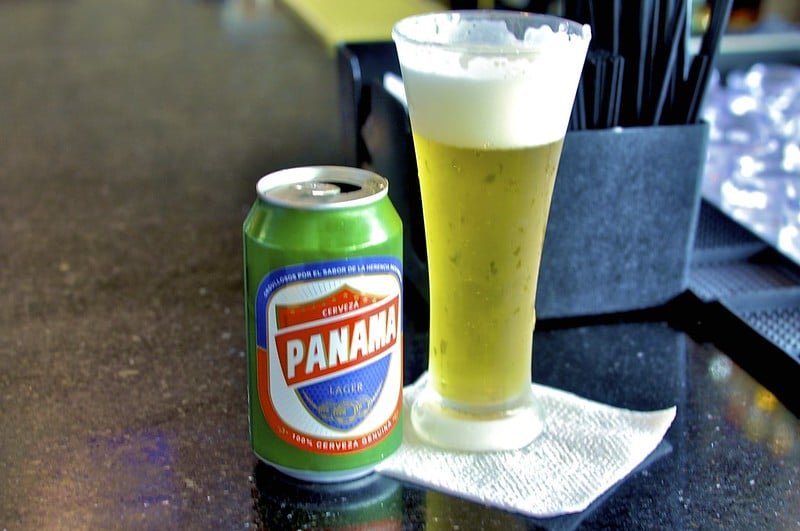
1: Alcohol. Most gout sufferers already know that beer and hard liquor are terrible but so is hard alcohol. If your uric acid levels are within the safe range, an occasional glass of wine may be ok. But that does not mean a bottle every day or a huge glass at every meal.
Alcohol contains purines; when the body processes purines, uric acid is formed. Processing alcohol from the body causes dehydration. If you are dehydrated, then your body is not properly processing excess uric acid.
If you are having an attack or feel one is coming on, please do not drink any alcohol; drink more water. If an attack starts, see your doctor early. The earlier you see your doctor, the quicker you will recover.

This is me at Costco. My wife said the picture was cute, but I could not use it as my “one glass.”

2: Shellfish / Seafood, including shrimp, mussels, crawfish, squid, oysters, crab, and lobsters, are very high in purines and should be severely limited.
Living in Louisiana and loving Korean food, severely limiting shellfish has been a big problem for me. Oysters are not a problem since I do not like them.
3: Seafood, Some seafood such as tuna, mackerel, anchovies, and salmon, are high in purines. As a quick guide, if a fish is known for having healthy omega 3’s, then it’s probably bad for gout suffers. These fish should only be consumed in small quantities only when your uric acid levels are in the normal range.
Fish sauce is made by concentrating anchovies with salt, so I do my best to avoid it. Fish sauce is often used in Korean cooking to make kimchi. Fish sauce is also widely used in Thai and Vietnamese cooking.
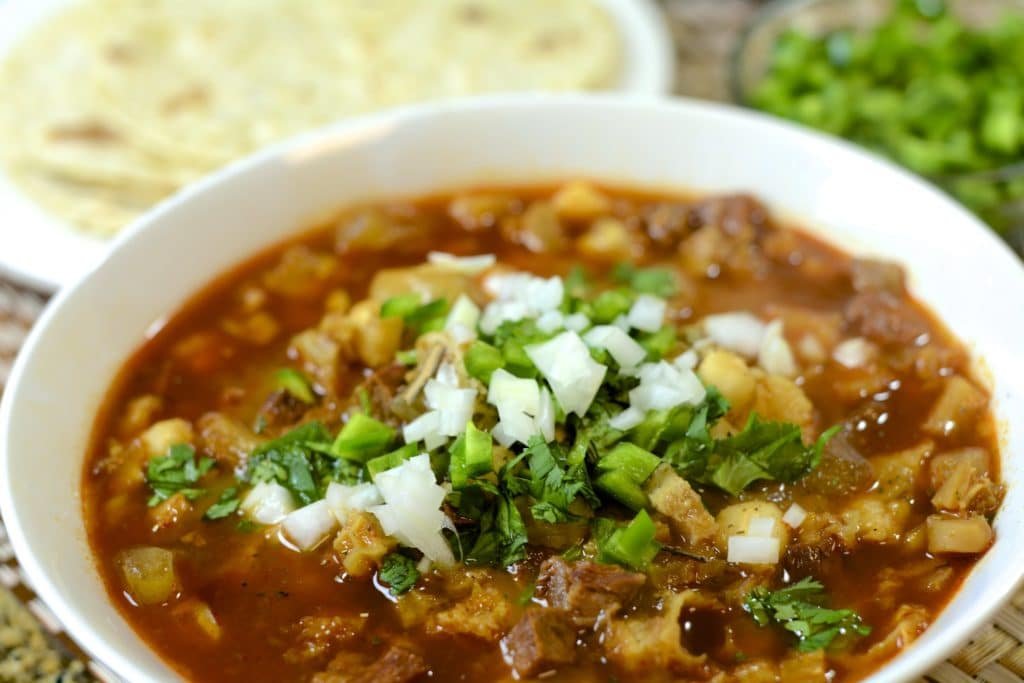
4: Internal Organs, including thymus glands, liver, heart, and kidneys, are very high in purines. Internal organs are often ground up into ground beef, hot dogs, and sausages.
For ground beef, find a butcher that meat grinds in-house and ask what they put in it. You want low-fat ground meat, not meat ground with internal organs. You can also buy a grinder and grind lean cuts meat. Then you will know what is in the ground meat that you are consuming.
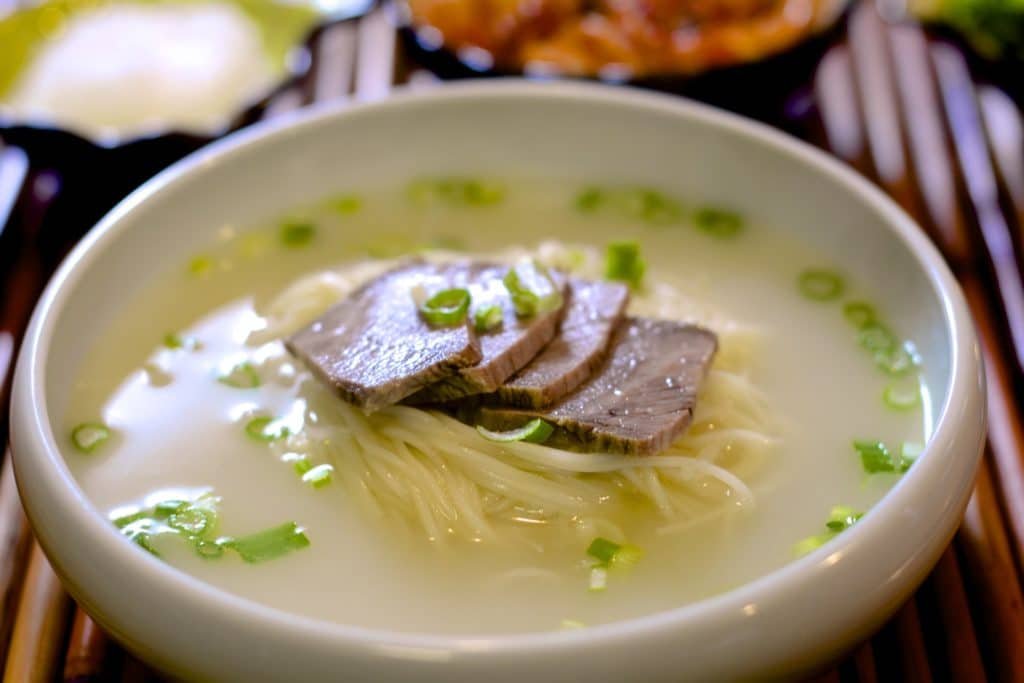
5: Bone or anything with bone is terrible for you. Beef and chicken stock are made with bones.
When dining out, gout sufferers should limit consumption of soups, stews, and gravies; they will usually have some bone stock. When cooking, use low sodium vegetable stock.
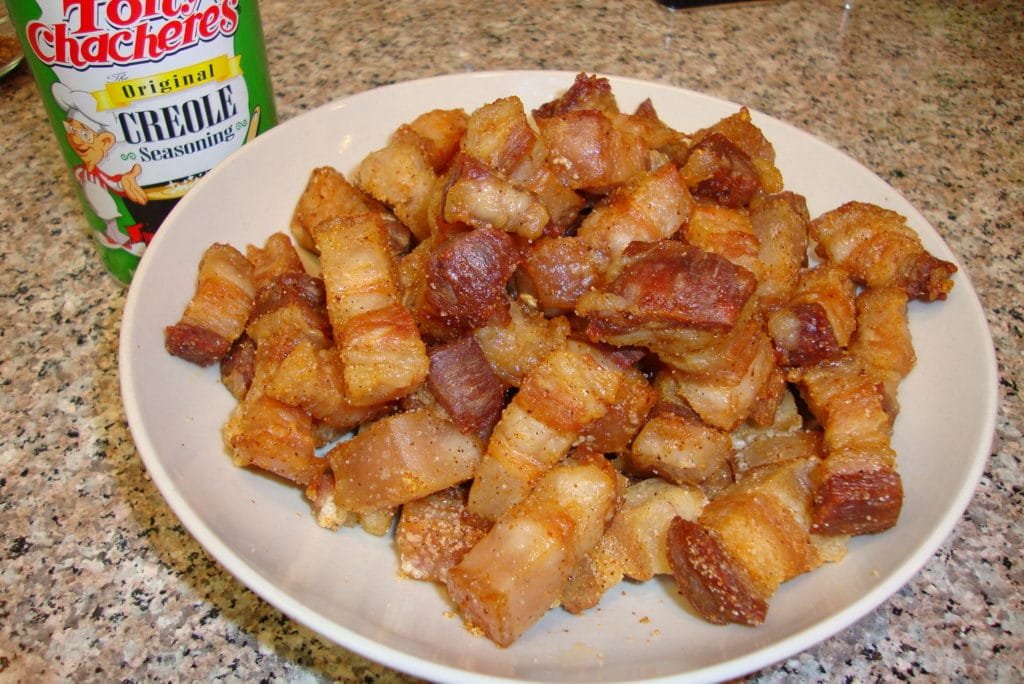
6: Fatty Meats As a general rule, gout sufferers should limit meat consumption to six ounces of lean meat per day. How strictly you should follow this limit depends upon your uric acid level. However, lean meats are a better choice for maintaining uric acid levels.
7: Yeast. Yeast is naturally high in purines. Small amounts of yeast like that found in bread are usually not an issue.
Some vegan products or restaurants will use large amounts of nutritional yeast to give something a cheesy flavor. When used in this manner, nutritional yeast can become a problem.
8: Processed meats have purines from the meat that are usually loaded with salt and will often be processed with sodium nitrate. Processed meats include bacon, ham, salami, hot dogs, and summer sausage.
9: Salt / MSG overconsumption of these can dehydrate you. The moderate use of salt is usually fine, and it makes food taste good. Processed foods containing large amounts of salt should be avoided when possible
Some gout sufferers are susceptible to foods that naturally have moderate levels of glutamate. I have worked with a guy who is sensitive to tomatoes. MSG is basically concentrated glutamate and is a possible gout trigger and should be limited as much as possible.
10: Sugar / Honey / Fructose / High Fructose Corn Syrup When the body breaks down sugar in any form, purines are formed. This is a tough one for me. At work, during the most stressful parts of projects, donuts will be everywhere. But I know that if I eat one, I will eat three. If I do that for a few days, I can feel my joints getting swollen.
Drink water rather than soft drinks. Watch your juices; you want the ones with no added sugars. But even natural fruit juices have high levels of sugar. Severely limit cakes, donuts, and pie.
Some foods fall into more than one category. Bacon is a prime example. It’s a fatty meat, salty, and usually is cured with sodium nitrate. Bacon was something that I ate every day. After my last big attack, I went for six months without eating bacon. Then while traveling for work, I ordered some with my breakfast. It was so salty that I only ate one bite.
After you start eating healthier, your taste buds will change, and you will enjoy fresh foods more. Not saying the urge to eat the donut will go away (I still find it hard to pass up a hot donut). But now I really enjoy the salads.
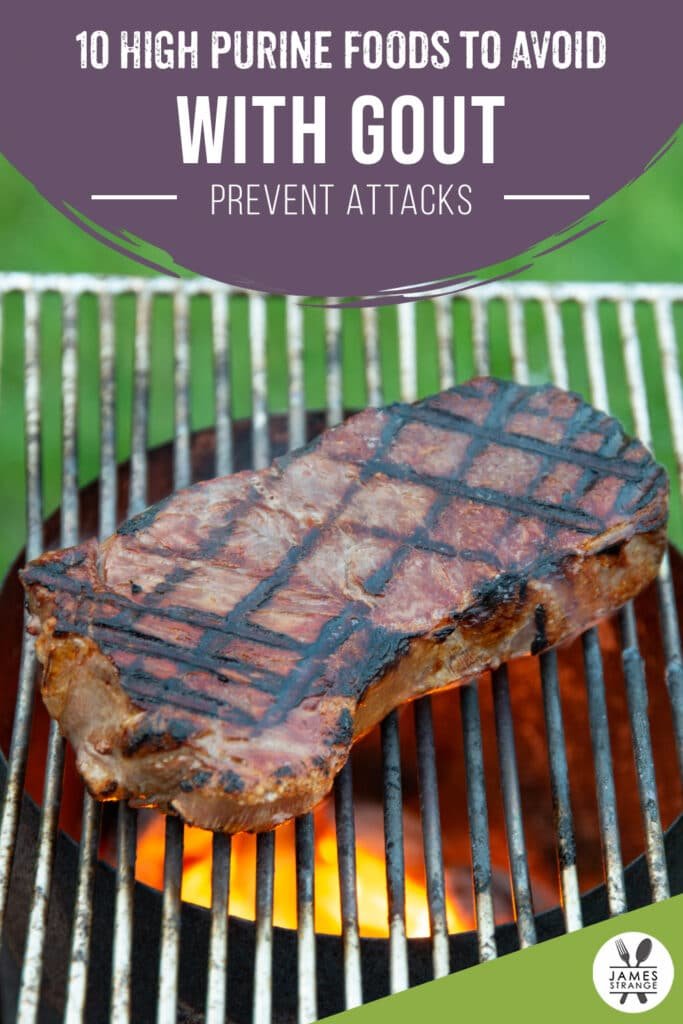
For a gout friendly recipe check out this red bean and vegetable soup recipe.
